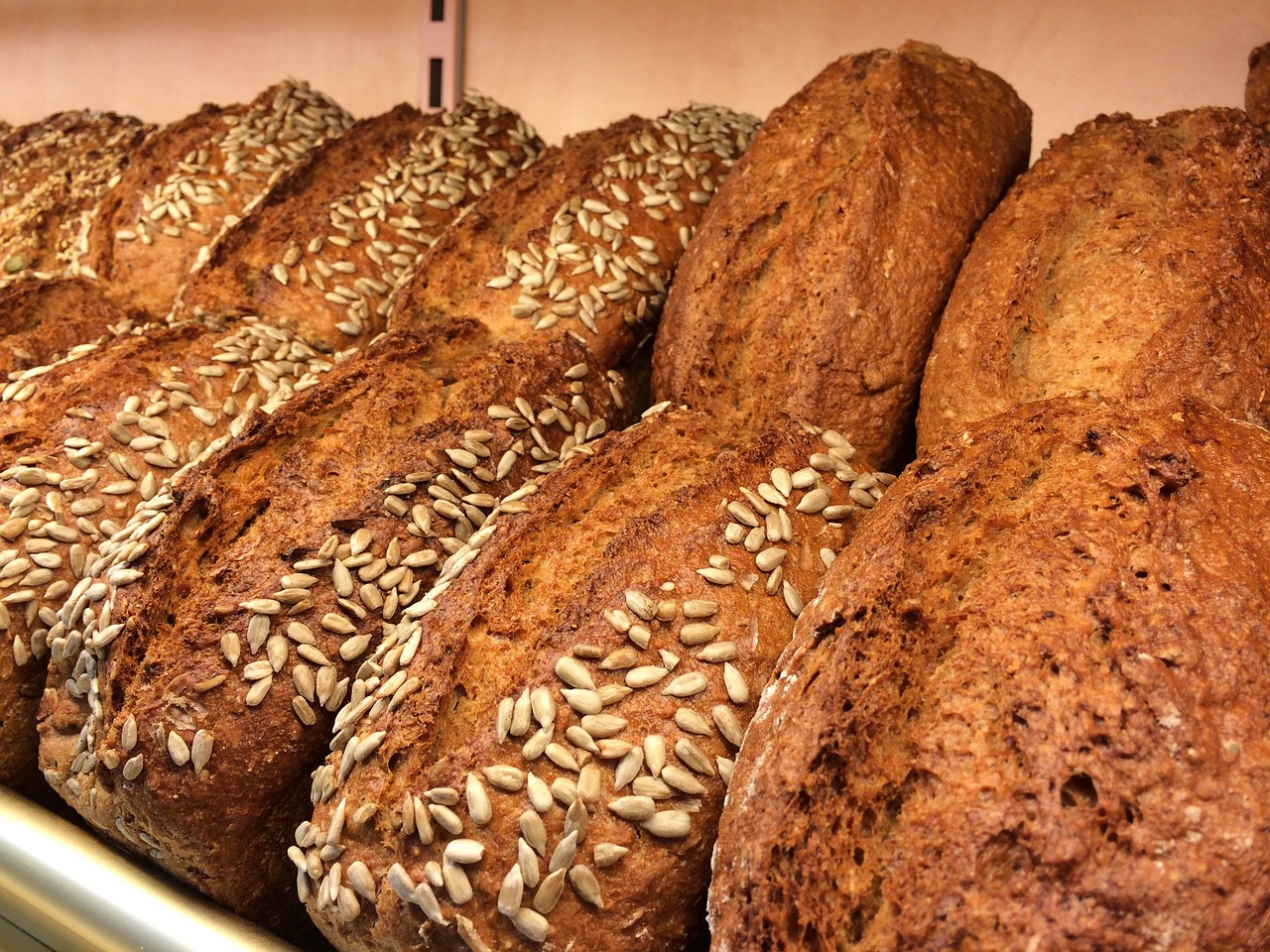Are you tired of counting calories and obsessing over macronutrients? Well, there’s a wholesome approach to nutrition that may just change the game. By harnessing the nutritional power of whole foods, you can nourish your body in a more natural and holistic way. Say goodbye to processed and packaged meals, and say hello to vibrant fruits, vegetables, whole grains, and lean proteins. In this article, we’ll explore the benefits of incorporating whole foods into your diet and how they can elevate your overall health and well-being. Get ready to discover a delicious and nutritious way of eating that will leave you feeling energized and satisfied.

Introduction to Whole Foods
Definition of whole foods
Whole foods refer to foods that are in their natural state, unprocessed or minimally processed. These foods are obtained directly from plants or animals, and they do not contain added ingredients or artificial substances. Whole foods are often characterized by their high nutrient content and lack of additives, making them a healthier choice for your overall well-being.
Why they are beneficial for health
Whole foods are beneficial for health because they provide a wide range of essential nutrients that our bodies need to function optimally. These nutrients include vitamins, minerals, fiber, antioxidants, and phytochemicals. When consumed in their natural form, these nutrients work together to promote better health and reduce the risk of various diseases.
Difference between whole foods and processed foods
The main difference between whole foods and processed foods lies in their degree of refinement and alteration. While whole foods are in their natural state, processed foods undergo various stages of refining and processing. This often involves the addition of preservatives, coloring, flavorings, and other artificial substances. As a result, processed foods usually lack the same nutrient density as their whole food counterparts.
Understanding Nutritional Power
Nutrients present in whole foods
Whole foods are packed with a wide array of nutrients that are essential for our body’s proper functioning. These include macronutrients such as carbohydrates, proteins, and fats, as well as micronutrients like vitamins and minerals. Additionally, whole foods contain fiber, which aids in digestion and helps maintain a healthy gut.
Synergistic effect of nutrients
One of the key advantages of consuming whole foods is the synergistic effect of the nutrients they contain. The unique combination and interaction of various nutrients in whole foods work together to provide enhanced health benefits. For example, the combination of vitamin C and iron in fruits helps improve the absorption of iron in the body. This synergistic effect cannot be replicated by simply taking individual nutrient supplements.
Better absorption and utilization by the body
The natural state of whole foods allows for better absorption and utilization of nutrients by the body. Compared to processed foods, which may have reduced nutrient availability or may be difficult for the body to recognize and process, whole foods provide nutrients in a form that our bodies are well-equipped to handle. This promotes optimal nutrient absorption and utilization, leading to better overall health.
Benefits of Whole Foods
Improved overall health
Consuming whole foods can have a profound impact on your overall health. The abundance of nutrients found in whole foods helps support various bodily functions, including immune function, cell repair, and hormone regulation. A diet rich in whole foods has been linked to a reduced risk of developing chronic diseases like heart disease, diabetes, and certain types of cancer.
Maintaining a healthy weight
Whole foods are typically lower in calories and higher in nutrients compared to processed foods. The high fiber content in whole foods helps you feel fuller for longer, reducing the likelihood of overeating or unnecessary snacking. By incorporating whole foods into your diet, you can maintain a healthy weight and promote sustainable weight loss if needed.
Reduced risk of chronic diseases
Chronic diseases, such as heart disease, obesity, and type 2 diabetes, are often linked to poor dietary choices and a high intake of processed foods. Whole foods, on the other hand, provide the necessary nutrients and antioxidants that can help reduce the risk of developing these diseases. By prioritizing whole foods in your diet, you can take proactive steps towards a healthier and disease-free life.
Choosing and Incorporating Whole Foods
Identifying whole foods
Identifying whole foods is quite simple. Look for foods that are in their natural and unprocessed form, such as fruits, vegetables, whole grains, lean meats, and dairy products without added sugars or artificial additives. These foods are usually found in the perimeter of the grocery store, where fresh produce and less processed items are stocked.
Choosing organic and locally sourced options
While not always possible, choosing organic and locally sourced whole foods can provide additional benefits. Organic foods are grown without the use of synthetic pesticides or genetically modified organisms (GMOs). Locally sourced foods often have a shorter transportation time, which means they are fresher and may contain higher nutrient levels.
Incorporating whole foods into everyday meals
Incorporating whole foods into your everyday meals can be done in various creative and delicious ways. Start with simple swaps, such as replacing white bread with whole grain bread, or swapping out sugary snacks for fresh fruits. Gradually increase the variety of whole foods in your meals, experimenting with different recipes and flavors. By making whole foods the foundation of your meals, you can easily reap the benefits they offer.

Whole Grains
Nutritional benefits of whole grains
Whole grains are an excellent source of fiber, vitamins, and minerals. They contain the entire grain, including the bran, germ, and endosperm, making them more nutrient-dense than refined grains. Whole grains have been linked to a reduced risk of heart disease, diabetes, and certain cancers. They also promote regular digestion, help in weight management, and contribute to overall gut health.
Types of whole grains
There are various types of whole grains to choose from, including quinoa, brown rice, oats, barley, whole wheat, and more. Each grain offers unique flavors and textures, allowing for endless culinary possibilities. Experimenting with different whole grains can help add variety and excitement to your meals while reaping their nutritional benefits.
Incorporating whole grains into the diet
Incorporating whole grains into your diet can be as simple as choosing whole grain bread or pasta instead of refined options. You can also explore alternative grains like quinoa or amaranth for a nutrient-packed side dish or main course. Enjoying a bowl of oatmeal for breakfast or adding whole grain crackers to your snack repertoire are other ways to incorporate whole grains into your daily routine.
Fruits and Vegetables
Beneficial nutrients in fruits and vegetables
Fruits and vegetables are rich in essential vitamins, minerals, antioxidants, and dietary fiber. They contribute to overall health by supporting a strong immune system, promoting healthy digestion, and providing important phytonutrients that help prevent diseases, including cancer and cardiovascular conditions. Each fruit and vegetable offers a unique set of nutrients, so incorporating a variety of colors into your diet is essential.
Importance of variety and colors
Eating a variety of fruits and vegetables ensures that you consume a broad spectrum of nutrients. Different colors of fruits and vegetables are associated with different types of health benefits. For example, red fruits and vegetables are often high in lycopene, a powerful antioxidant that supports heart health and may reduce the risk of certain cancers. Aim to include a rainbow of colors in your meals to maximize the nutritional benefits.
Creative ways to include more fruits and vegetables
Getting creative with how you include fruits and vegetables in your meals can make healthy eating more enjoyable. Blend fruits into smoothies, add vegetables to stir-fries and omelets, top salads with a variety of colorful produce, or enjoy fruits and vegetables as snacks throughout the day. Don’t be afraid to try new recipes or explore different cooking methods to discover exciting ways to incorporate these nutrient-packed foods into your everyday routine.

Lean Proteins
Importance of lean proteins in a balanced diet
Proteins are essential for building and repairing tissues, supporting immune function, and providing energy. Lean proteins, such as poultry, fish, legumes, and tofu, offer these benefits without the excess fat and cholesterol found in fatty meats. Including lean proteins in your diet helps maintain muscle mass, aids in weight management, and promotes a feeling of fullness.
Sources of lean proteins
There are numerous sources of lean proteins to choose from. Poultry, such as chicken and turkey, are lean options that can be enjoyed grilled, roasted, or sautéed. Fish, such as salmon or tuna, provide omega-3 fatty acids along with lean protein. Legumes, including beans, lentils, and chickpeas, are plant-based sources of protein that are also rich in fiber. Tofu and other soy products are a great vegetarian or vegan option for lean protein.
Recipes and meal ideas featuring lean proteins
Incorporating lean proteins into your meals can be both delicious and nutritious. Try marinating chicken with herbs and spices and grilling it for a flavorful and lean main course. Include fish in your diet by baking it with lemon and herbs or pan-searing it for a crispy texture. Experiment with vegetarian or vegan meals by incorporating legumes into dishes like chili, salads, or tacos. These versatile proteins can be seasoned and cooked in various ways to suit your taste preferences.
Healthy Fats
The role of healthy fats in the body
Healthy fats play a crucial role in our body’s overall health and functioning. They provide energy, support cell growth, absorb essential vitamins, and help regulate hormone levels. Consuming healthy fats is also associated with improved heart health and a reduced risk of chronic diseases. It’s important to include good sources of fats in your diet to maintain optimal well-being.
Sources of healthy fats
Healthy fats can be found in foods such as avocados, nuts, seeds, olive oil, and fatty fish like salmon and sardines. Avocados are rich in monounsaturated fats, which have been linked to heart health. Nuts and seeds provide a combination of healthy fats, fiber, and various micronutrients. Olive oil, particularly extra-virgin olive oil, is a staple in the Mediterranean diet and offers numerous health benefits. Fatty fish contain omega-3 fatty acids, which are essential for brain health and heart disease prevention.
Incorporating healthy fats into meals and snacks
Incorporating healthy fats into your meals and snacks can be achieved by using olive oil as a base for dressings and marinades, adding avocado slices to salads or sandwiches, or enjoying a handful of nuts or seeds as a snack. Cooking with coconut oil or using nut butter as a spread are other ways to incorporate healthy fats into your everyday routine. Remember to consume healthy fats in moderation, as they are higher in calories compared to other nutrients.

Avoiding Processed Foods
Negative impact of processed foods on health
Processed foods tend to be high in added sugars, unhealthy fats, sodium, and artificial substances. Consuming a diet high in processed foods has been associated with obesity, type 2 diabetes, cardiovascular diseases, and other chronic health conditions. The excessive intake of processed foods typically leads to a diet lacking in essential nutrients and high in empty calories, contributing to poor health outcomes.
Hidden additives and preservatives
One of the downsides of processed foods is the presence of hidden additives and preservatives. These substances are often added to enhance flavor, extend shelf life, or improve texture. However, many of these additives have been linked to adverse health effects and may contribute to allergic reactions or sensitivities in some individuals. By preferring whole foods over processed alternatives, you can reduce your exposure to these potentially harmful substances.
Tips for reducing processed food consumption
Reducing your consumption of processed foods can greatly benefit your health. Start by reading food labels and ingredient lists to identify hidden additives and choose products with fewer artificial substances. Cook and prepare meals at home using whole ingredients whenever possible, as this gives you more control over what goes into your meals. Gradually limit your intake of packaged snacks, sugary beverages, and foods with added sugars. By making conscious choices and being mindful of your food selections, you can successfully reduce your reliance on processed foods.
Building a Whole Foods Shopping List
Essential items to include in a whole foods shopping list
When building a whole foods shopping list, focus on selecting a variety of fruits, vegetables, whole grains, lean proteins, healthy fats, and dairy or dairy alternatives. Include a range of colors and flavors to ensure you are getting a diverse range of nutrients. Opt for minimally processed options whenever possible and choose organic and locally sourced products when available and feasible.
Meal planning and prepping
Meal planning and prepping can make incorporating whole foods into your daily routine more manageable. Plan your meals for the week, considering the whole foods you have on hand or need to purchase. Create a shopping list based on your meal plan, taking into account the ingredients required for each meal. Set aside time to prep and cook ahead, such as washing and chopping fruits and vegetables or cooking grains and proteins to make meal assembly easier during busy days.
Budget-friendly tips for buying whole foods
Buying whole foods doesn’t have to break the bank. Here are some budget-friendly tips to help you save while prioritizing your health:
- Buy in bulk: Purchase non-perishable whole foods like grains, nuts, and seeds in bulk to save money in the long run.
- Seasonal produce: Opt for seasonal fruits and vegetables, as they are often more affordable and at their peak flavor.
- Plan meals strategically: Incorporate budget-friendly whole foods, like legumes and whole grains, into your meal plan as cost-effective alternatives to pricier proteins or refined grains.
- Shop sales and discounts: Keep an eye out for sales and discounts on whole foods. Stock up on non-perishable items or freeze extra produce for later use.
- Grow your own: If you have the space and resources, consider growing your own fruits, vegetables, or herbs. This allows you to enjoy the benefits of fresh whole foods while saving money.
By being mindful of your shopping choices and implementing these tips, you can enjoy the benefits of whole foods while staying within your budget.
Incorporating whole foods into your diet is a long-term investment in your health and well-being. By understanding the nutritional power of whole foods, choosing them consciously, and incorporating them into your meals, you can make positive changes that will impact your overall health. Embrace the wholesomeness of whole foods and enjoy the numerous benefits they have to offer. Your body will thank you!





